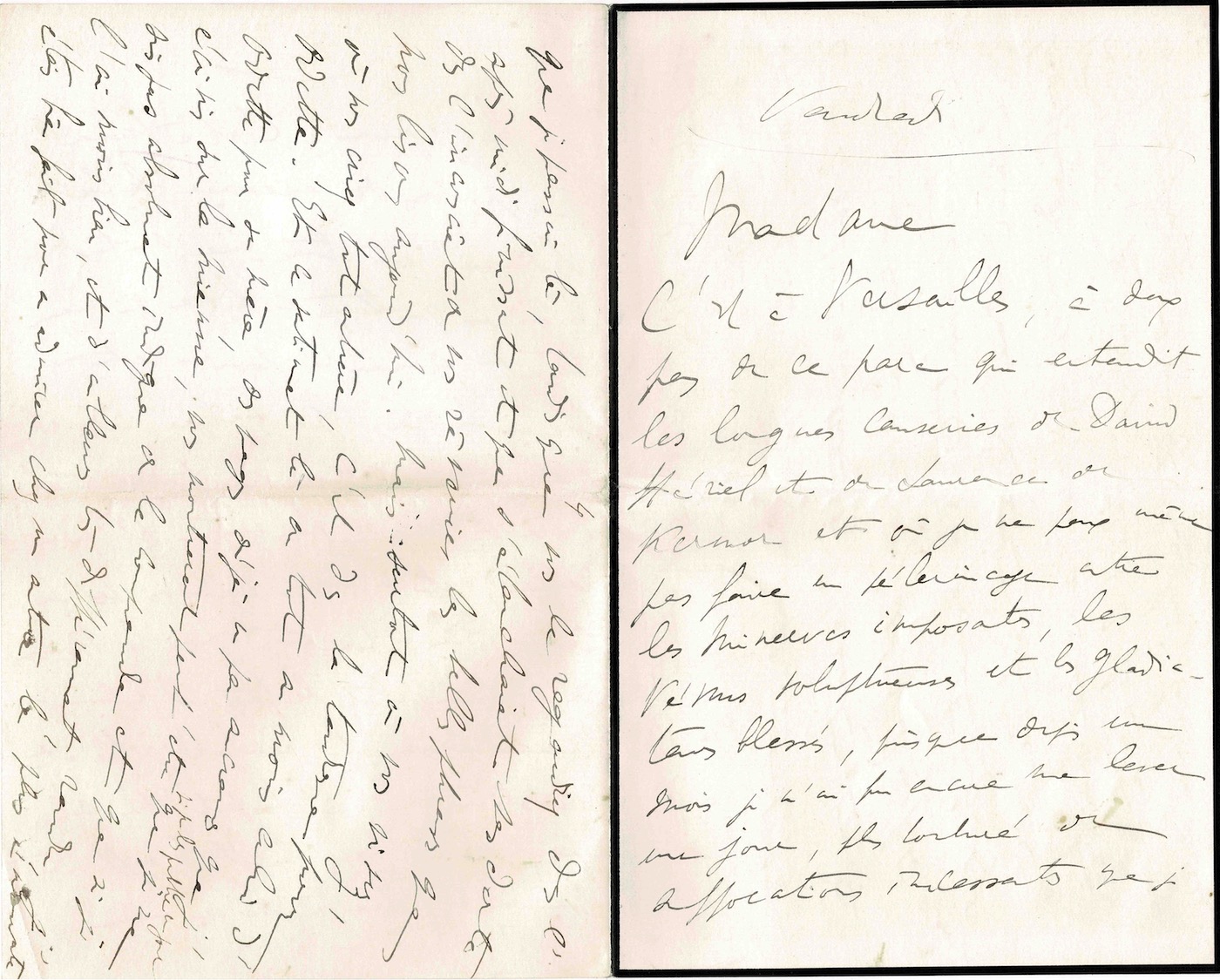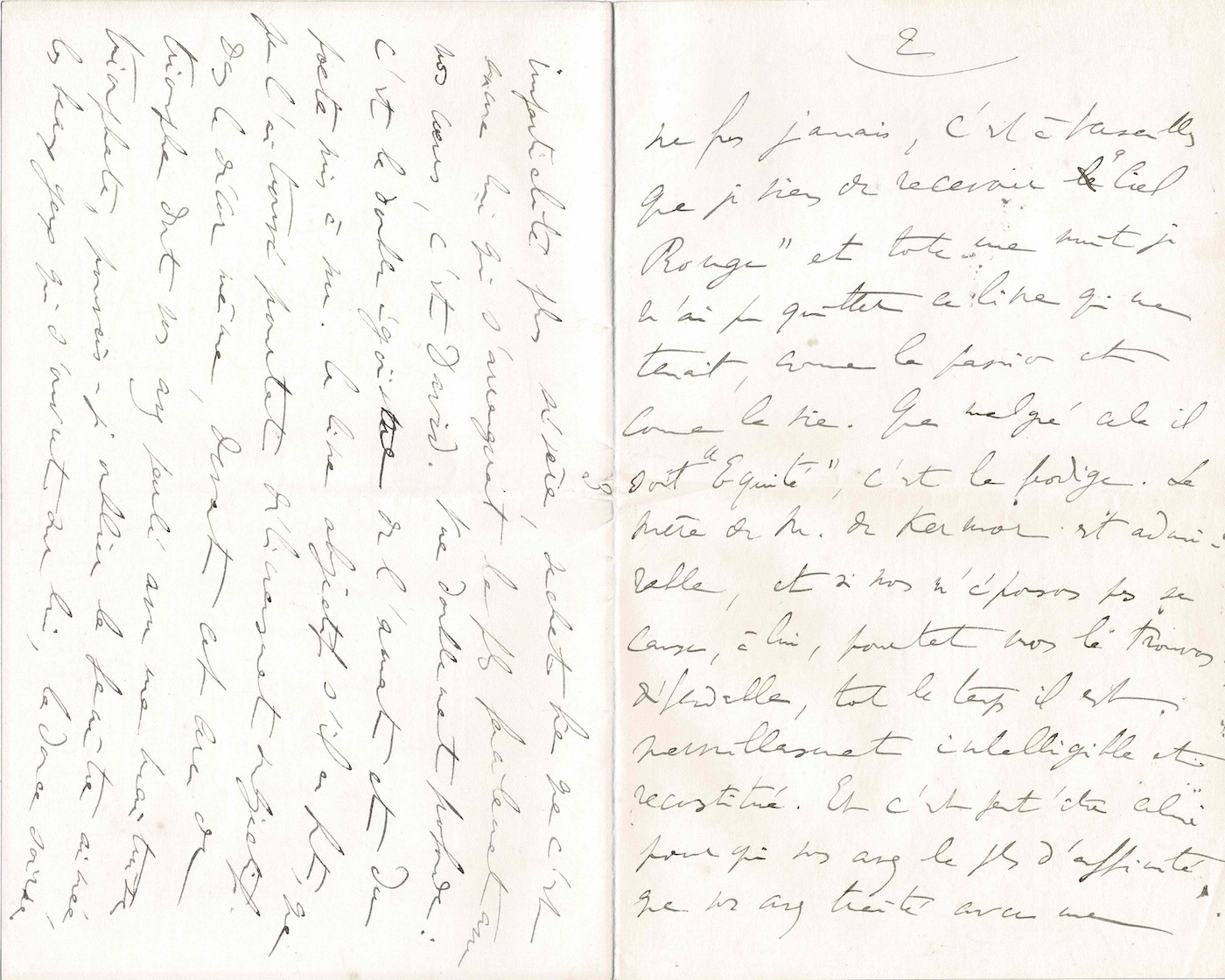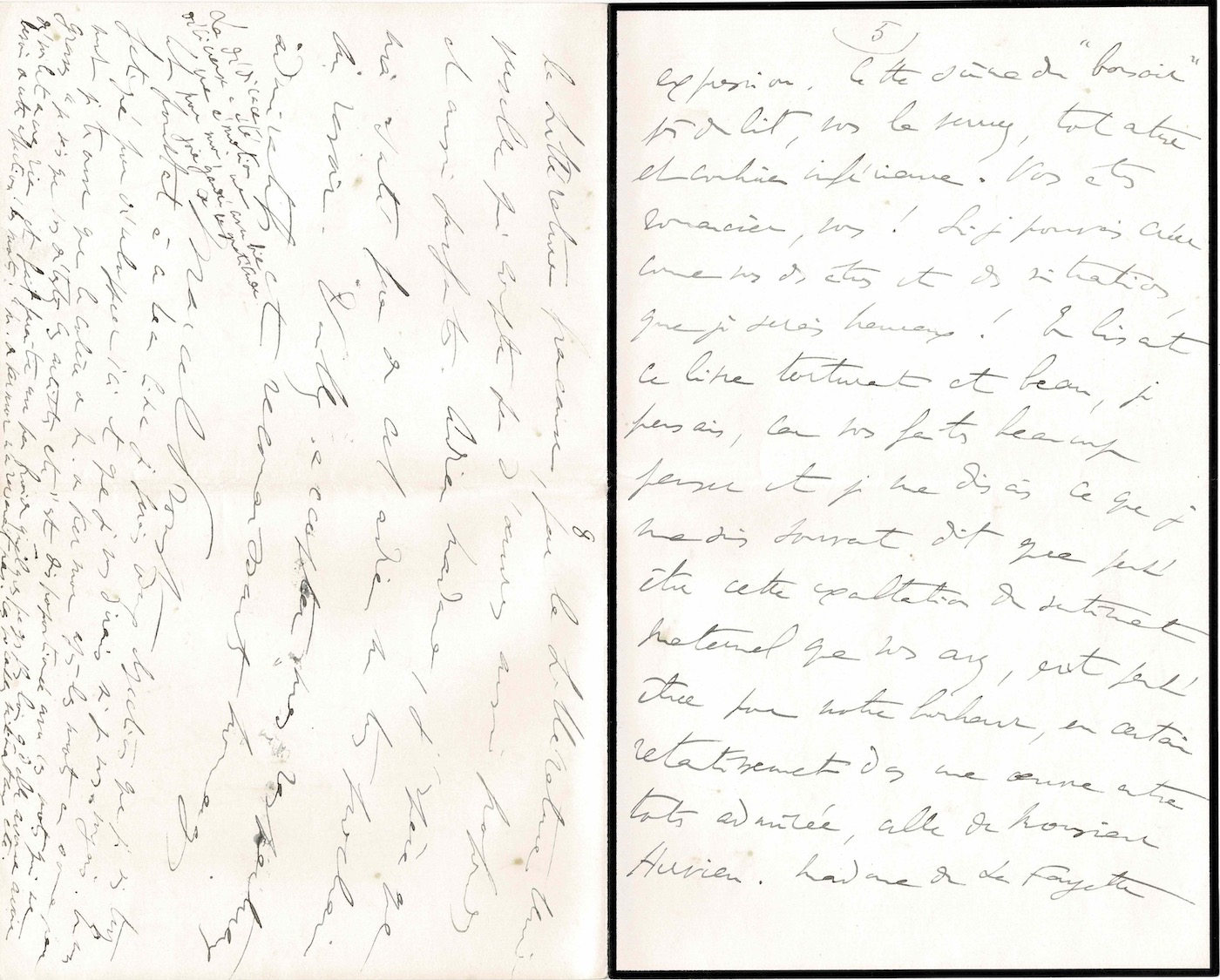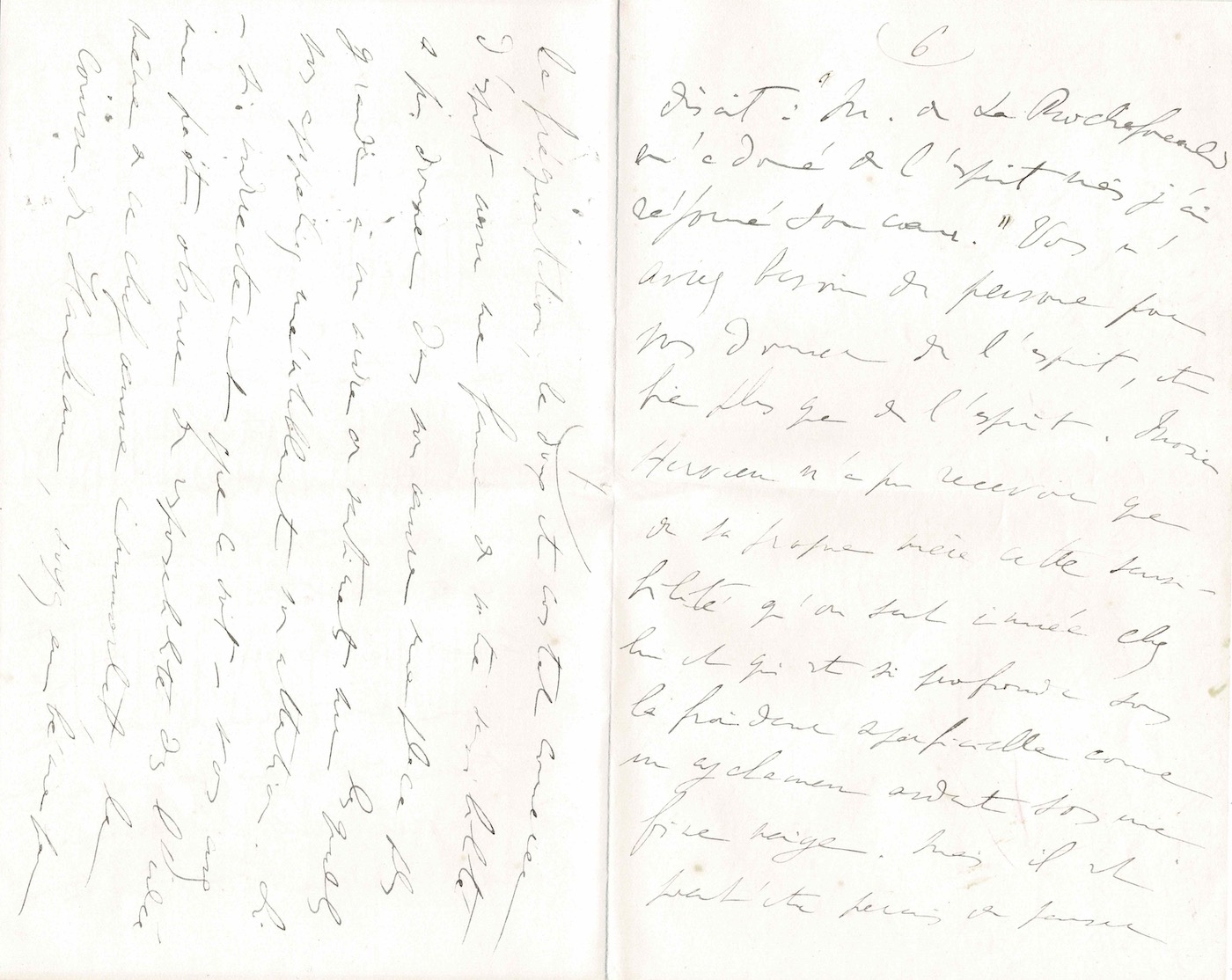Marcel Proust (1871.1922)
Autograph letter signed to Baroness Aimery Harty of Pierrebourg.
Eight pages in-8° on mourning paper. [Versailles] Friday [October 23, 1908]
Kolb, Volume VIII, pages 249 to 251.
“And this feeling or at least that of Odette for her mother, the already somewhat old pages that I wrote on mine, will perhaps show you if I publish them one day that I am not absolutely unworthy to understand it. »
Extraordinary literary letter, evoking his work in progress and the character of Odette.
_________________________________________________________________
“Madame, It is in Versailles, a stone's throw from this park which heard the long talks of David Hériel and Laurence de Kermot and where I cannot even make a pilgrimage between the imposing Minervas, the voluptuous Venuses and the wounded gladiators [characters from the novel Ciel rouge by the recipient], since for a month I have not yet been able to get up one day, more tortured by incessant suffocation than I ever was, it is in Versailles that I have just received “Ciel Rouge » and all night I could not leave this book which held me, like passion and like life. That despite this it is “Equity” is a miracle. M. de Kermor's mother is admirable, and if we do not espouse his cause, although we find it defensible, all the time he is wonderfully intelligible and reconstituted. And it is perhaps the one for whom you have the most affinity, whom you have treated with a more severe impartiality, knowing well that it is still he who would come to terms most easily with our hearts, it is David. Doubly profound view: it is the double selfishness of the lover and the poet laid bare. This objective book if ever there was one, I nevertheless found it deliciously subjective. In the setting itself, in front of this Arc de Triomphe of which you spoke with triumphant mastery, could I forget the beloved window, the beautiful eyes that opened on it, the sweet evening that I spent there, while you looked at it? in the late afternoon and that the beautiful sentences that we read today were undoubtedly reflected in the unconscious of your reveries. But above all where you live, where you cry entirely, it is in tenderness for Odette. And this feeling, or at least that of Odette for her mother, from the already somewhat old pages that I wrote on mine, will perhaps show you if I publish them one day that I am not absolutely unworthy of understand it and that if I rendered it less well, and moreover very differently, I was well suited to admire the most moving expression of it in another. You would see this “good evening” scene near the bed, quite different and how inferior.
You are a novelist! If I could create beings and situations like you, how happy I would be!
While reading this torturous and beautiful book, I thought, because you make us think a lot and I said to myself what I have often said to myself, that perhaps this exaltation of the maternal feeling that you have, perhaps had for our happiness, a certain impact in an admired work among all, that of Monsieur Hervieu. Madame de La Fayette said: “Mr. de La Rochefoucauld gave me wit but I reformed his heart” You did not need anyone to give you wit, and much more than wit. spirit. Monsieur Hervieu could only have received from his own mother this sensitivity which we feel is innate in him and which is so deep beneath the superficial coldness like a fiery cyclamen beneath a fine snow.
But it is perhaps permissible to think [that] the frequentation, the gentle and constant exchange of wit with a woman of your sensitivity could have given a greater place in her work to an order of feelings on which you inevitably called upon her attention. If – however indirectly – you have an obscure share of responsibility in the very idea of this immortal masterpiece, the Torch Race, may you be blessed by French Literature, by universal Literature which There are few works so profound and so perfect.
Farewell Madam, I hope that my health will make this farewell a very soon goodbye. Please accept my respectful, admiring and grateful tributes, Marcel Proust.
And yet to this beautiful book I would make two objections which I am too tired to develop here and which I would tell you if I saw you. In a word, I find that Mr. de Kermor's anger after the generally not very serious words "I know that you hate artists etc., is disproportionate to these words which do not yet reveal anything, and makes some pages seem a little cold later when she admits to needing this affection the words: “M. de Kermor couldn’t believe it. These sentimental words etc. “ The delicious dedication was an emotion for me, a joy guarded with much gratitude.”





